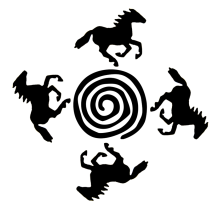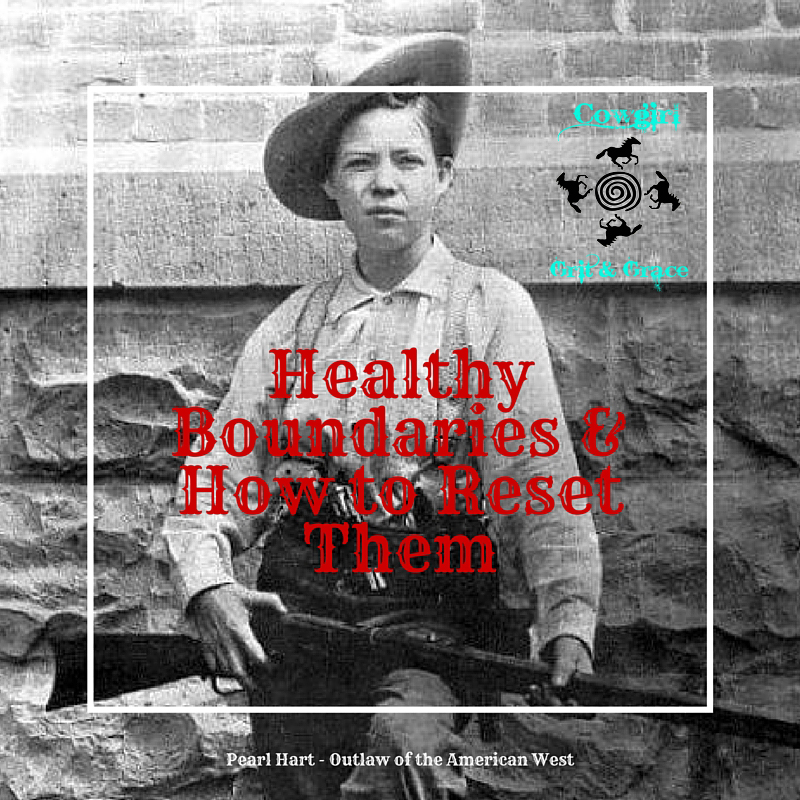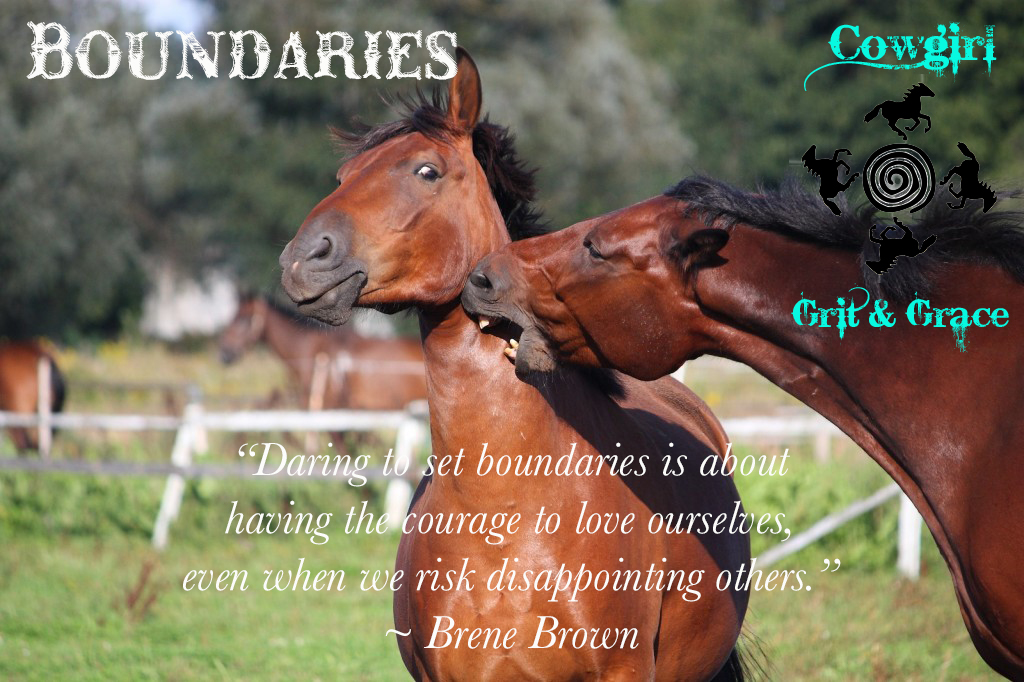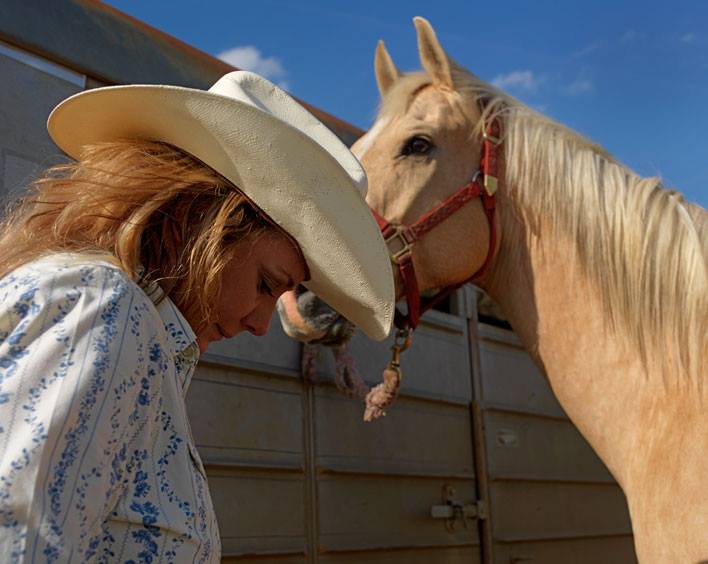There comes a point in all of our lives where we have to look at ourselves square in the eye and honestly ask ourselves if we are living our lives fully, authentically, and courageously.
The horse symbolizes personal drive, passion and an appetite for freedom. No other animal has played a more significant role in the history and development of mankind. While we no longer need the horse to conquer new lands; the horse plays a new role, in the field of Equine Assisted Learning and calls us to conquer new territory within ourselves.
We, like the horse are meant to be wildly passionate, fiercely independent, the creators of our own lives, chase after our dreams with a ferocious passion for life and create our own legacy.
We are meant to express our power, freeing our lives from the social, emotional, creative, financial and spiritual chains that enslave us.
We have allowed situations, circumstances and others to dictate, direct and control our lives and reality for far too long. We have given our power away. Only you can allow people and things to have an unhealthy level of control and influence on your life.
Because like the horse, we all want acceptance, approval, connection, security and love of the herd. In order to get this we continually compromise ourselves eventually losing our True Selves. We’ve allowed others to tell us what we can and can’t do. What we should think. What we should believe. What our future holds and even what our life purpose should be.
The horse symbolizes personal drive, passion and an appetite for freedom. No other animal has played a more significant role in the history and development of mankind. While we no longer need the horse to conquer new lands; the horse plays a new role, in the field of Equine Assisted Learning and calls us to conquer new territory within ourselves.
We, like the horse are meant to be wildly passionate, fiercely independent, the creators of our own lives, chase after our dreams with a ferocious passion for life and create our own legacy.
We are meant to express our power, freeing our lives from the social, emotional, creative, financial and spiritual chains that enslave us.
We have allowed situations, circumstances and others to dictate, direct and control our lives and reality for far too long. We have given our power away. Only you can allow people and things to have an unhealthy level of control and influence on your life.
Because like the horse, we all want acceptance, approval, connection, security and love of the herd. In order to get this we continually compromise ourselves eventually losing our True Selves. We’ve allowed others to tell us what we can and can’t do. What we should think. What we should believe. What our future holds and even what our life purpose should be.
People can only take our personal power if we give it to them.
At some point we have to stop worrying about what others think, open more and more to the direct experience of our own lives and no longer settle for mediocrity. Our desires to play it safe and be accepted only dull the full experience of life.
Those who are obsessed with power, money, or adoration have to constantly wear the mask of the false self in order to succeed. When we can’t be who we truly are, we create insecurity in ourselves and in our lives. They are constantly trying to figure out who they have to please in order to get what they want. There is no true joy in living someone else's life.
In our society today there also seems to be an overwhelming movement toward entitlement. These people live in a lie that the world and this lifetime owes them something. The reality is by choosing not to be the master and commander of their lives, their lives will unfold by default. Will your default be to continue to experience the same old patterns and to allow the outside world - your family, friends and society dictate your life?
Living a life that is not your own is the ultimate suffering in life!
It is only in being your True Self, having strong boundaries (which we discussed the last three weeks), and choosing your own path in life do we find integrity and the foundation of happiness in life.
It’s not always the easiest path, living your life fully takes grit and courage. But the rewards are authenticity, empowerment, unbounded independence and self-reliance.
Are you content to play small in life? Are you ready to live your life with full presence and personal power? Are you ready to set clear goals and intentions that steer the course of your life? Are you ready to live your dreams and voice your desires?
After surviving breast cancer I had to get really honest with myself and ask myself these hard questions. I wasn’t living my life fully, knew I wasn’t living up to my full potential and was miserable when I looked at living the rest of my life the way I had previously been. It took me awhile to work through all the excuses I had rationalized in my own mind as to why I couldn’t be living life fully. I found I was the only one holding myself back from having the life of my dreams. Which we will discuss in detail over the next several blog posts.
Those who are obsessed with power, money, or adoration have to constantly wear the mask of the false self in order to succeed. When we can’t be who we truly are, we create insecurity in ourselves and in our lives. They are constantly trying to figure out who they have to please in order to get what they want. There is no true joy in living someone else's life.
In our society today there also seems to be an overwhelming movement toward entitlement. These people live in a lie that the world and this lifetime owes them something. The reality is by choosing not to be the master and commander of their lives, their lives will unfold by default. Will your default be to continue to experience the same old patterns and to allow the outside world - your family, friends and society dictate your life?
Living a life that is not your own is the ultimate suffering in life!
It is only in being your True Self, having strong boundaries (which we discussed the last three weeks), and choosing your own path in life do we find integrity and the foundation of happiness in life.
It’s not always the easiest path, living your life fully takes grit and courage. But the rewards are authenticity, empowerment, unbounded independence and self-reliance.
Are you content to play small in life? Are you ready to live your life with full presence and personal power? Are you ready to set clear goals and intentions that steer the course of your life? Are you ready to live your dreams and voice your desires?
After surviving breast cancer I had to get really honest with myself and ask myself these hard questions. I wasn’t living my life fully, knew I wasn’t living up to my full potential and was miserable when I looked at living the rest of my life the way I had previously been. It took me awhile to work through all the excuses I had rationalized in my own mind as to why I couldn’t be living life fully. I found I was the only one holding myself back from having the life of my dreams. Which we will discuss in detail over the next several blog posts.
Our deepest fear is not that we are inadequate. Our deepest fear is that we are powerful beyond measure.”
Marianne Williamson
I began by declaring the life I wanted to live without apology, using only my intuition and True Self as my guide which became The Cowgirl Manifesto on the About page of this website.
Nothing external can save us or make us happy and the fateful hour is at hand when you decide to stay trapped in the life you’ve created up to this point or create the amazing life you’ve always dreamed and deserved!
If you have signed up for this blog you received with it a Personal Power Inventory worksheet and a guide to help you create your own manifesto. If you would like to receive these worksheets please sign up for this blog at - http://cowgirlgritandgrace.com/thoughts.html
You may also like to read:
Nothing external can save us or make us happy and the fateful hour is at hand when you decide to stay trapped in the life you’ve created up to this point or create the amazing life you’ve always dreamed and deserved!
If you have signed up for this blog you received with it a Personal Power Inventory worksheet and a guide to help you create your own manifesto. If you would like to receive these worksheets please sign up for this blog at - http://cowgirlgritandgrace.com/thoughts.html
You may also like to read:







